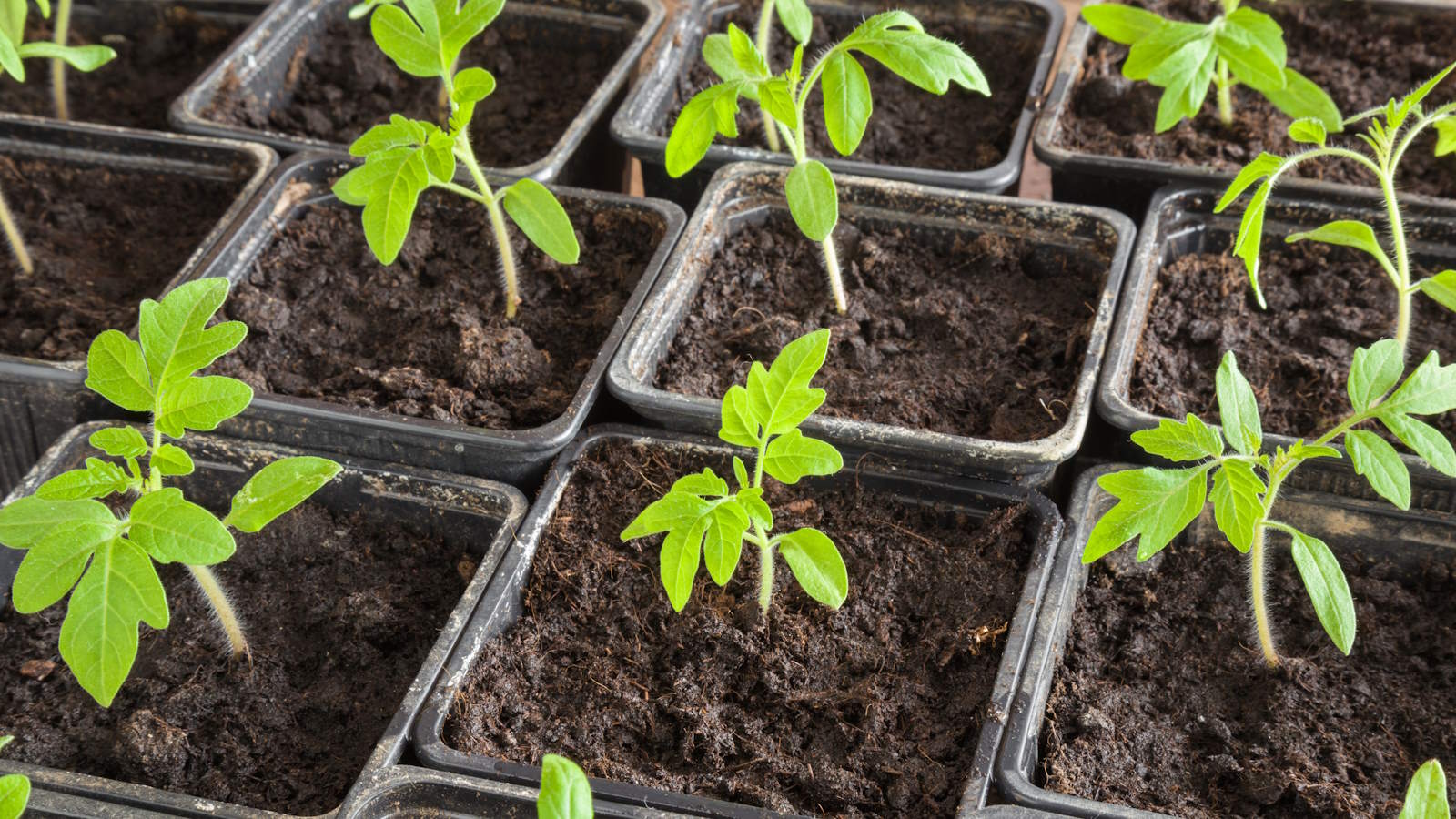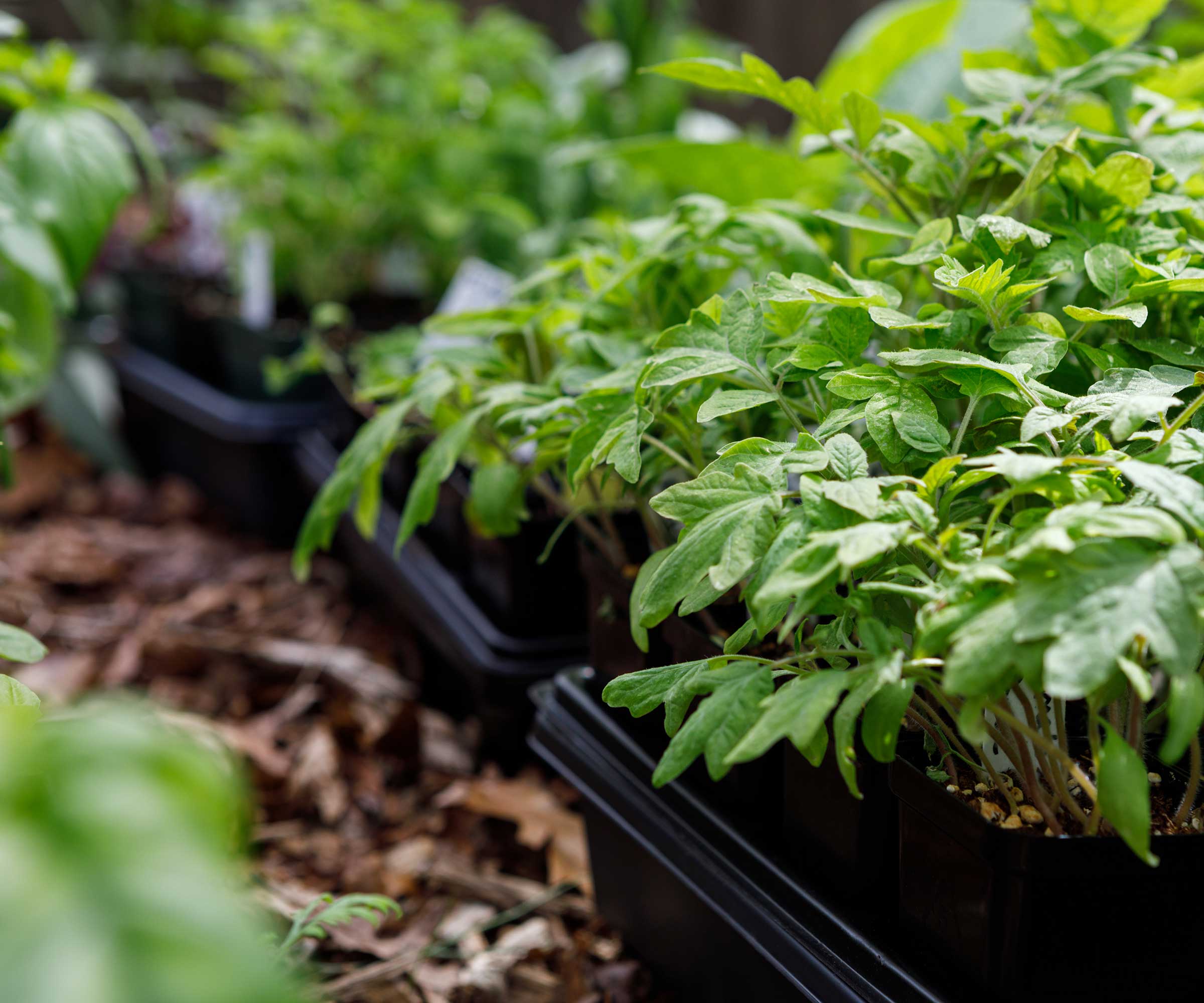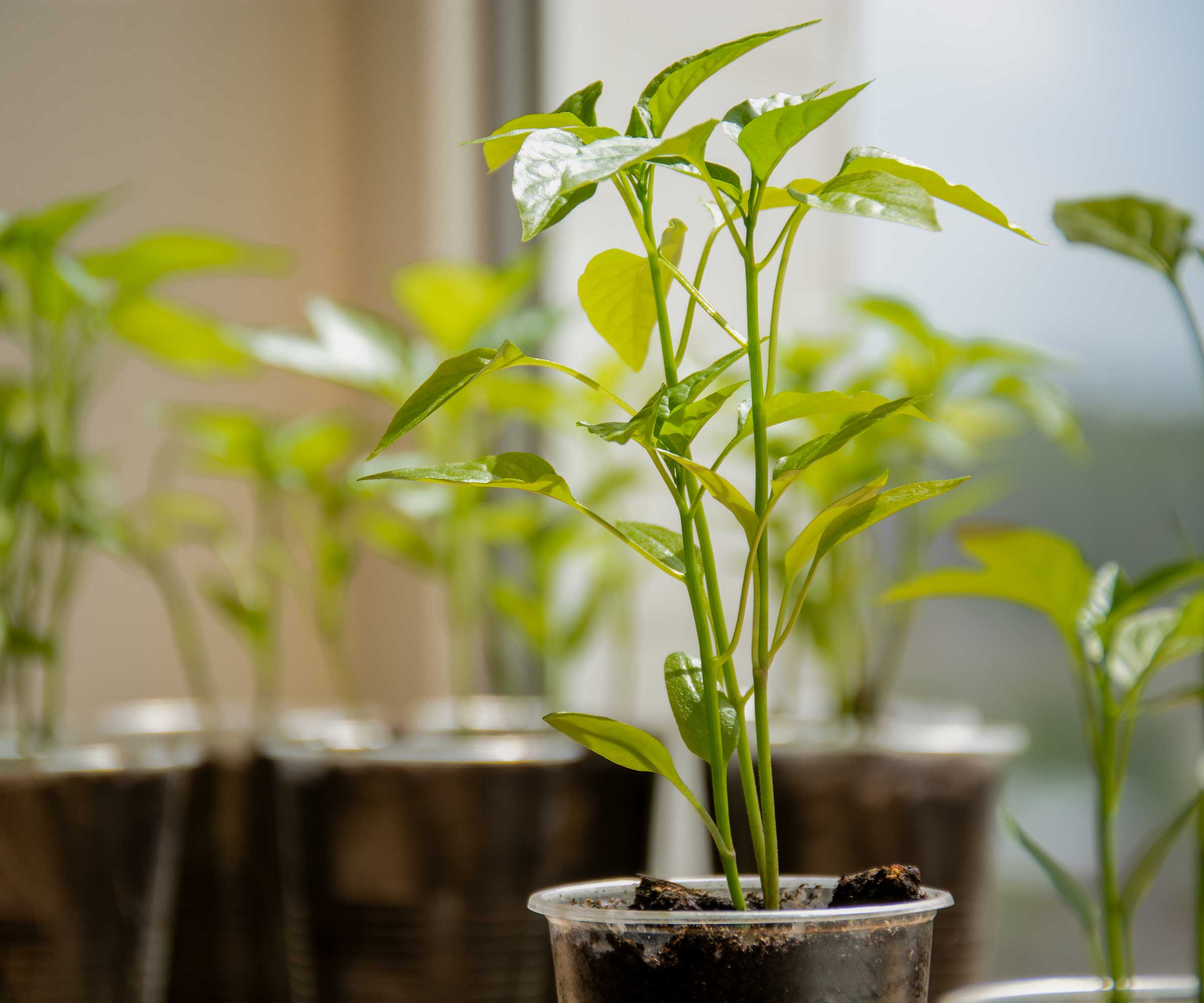
Sowing seeds indoors in early spring is a great way to get a head start. Once the weather warms up enough, you can move them into your yard – but it's not quite as simple as you might expect. Transplanting them from A to B and assuming 'job done' is generally a no-go, as it can shock and weaken your newly-sprouted flowers and veg.
Knowing how to harden off seedlings, therefore, is a key step in helping them thrive. In a nutshell, this means making the 'big move' a bit more gradual (usually over two weeks or so), to help them ease into their new surroundings.
Below, horticultural experts share more info on the benefits of this task, and what can happen if you skip it. Plus, there's advice on which types of plants it's particularly important for – as well as the exceptions that won't need it.
What does it mean to harden off a plant and what are the benefits?

Rebecca Sears of Ferry-Morse explains hardening off plants is the process of acclimating them to outdoor conditions by exposing them to sunlight, temperature fluctuations, wind, and more. This gradual adjustment period helps plants build their resilience so they can thrive in your garden, she adds.
On a physiological level, Amy Enfield, senior horticulturist at ScottsMiracle-Gro, explains that the process encourages plants to strengthen their cell walls, which makes stems sturdier and able to withstand wind. It also helps them develop a thicker cuticle layer (the waxy, protective layer on the leaf surface) to reduce water loss and protect against sunscald, she adds.
'Acclimated plants take off quickly after planting, developing a strong root system to support above-ground growth,' she continues. Plus, they are 'less likely to experience transplant shock, which can cause stunted growth, yellowing leaves, and even leaf drop.'
In other words – if you're sowing seeds under cover this year, whether that's on a sunny windowsill or in a greenhouse, this step is well worth the effort to help keep them healthy. But it's not just for seedlings; plants that you've overwintered indoors will benefit from the hardening-off process, too.
What can happen if you don't harden off plants

'Taking a plant directly outside from a greenhouse (or from inside your home if you’ve overwintered it), can cause a lot of stress to the plant, setting it back,' warns Justin Hancock, a horticulturist from Costa Farms. 'Depending on the change of conditions, a harsh transition could even potentially kill an especially soft or weakened plant.'
Sudden exposure to fluctuating temperatures, direct sunlight, and wind may lead to wilting, sunburn, or stunted growth, Rebecca adds.
FAQs
Which plants benefit from being hardened off?
Rebecca recommends hardening off any plant that has been grown in controlled conditions, 'and especially for tender annuals like cucumbers, basil, and even flowers like zinnias'. It’s a particularly smart step if you’ve started seeds indoors under grow lights, she adds, explaining how the intensity of the sun is much greater.
Justin adds that the more stressed, tender, or young a plant is, the more it benefits from it. 'A seedling, for example, will benefit a lot more from being hardened off than a large, healthy plant of the same variety.'
As mentioned above, overwintered plants will benefit, too, if you plan on popping them back on your patio for the summer (pelargoniums, for instance). 'If you move your houseplants outside for the warm summer months, they need a slow introduction to the outdoors before staying outside all day and night,' Amy says.
I've bought a shrub from a local nursery, does it need to be hardened off at home?
This all depends on whether it was indoors or outdoors at the nursery. As Amy points out, shrubs and trees grown and overwintered outdoors do not need any additional acclimatization.
'Similar to trees and shrubs, many hardy perennials are grown outdoors and do not need to be hardened off,' she adds. 'The exception to this is if they are grown in a greenhouse; in that case, the plants should be hardened off before planting.'
While hardening off seedlings has plenty of benefits, it's important to remember there are many other steps needed to raise healthy, thriving plants, including at the germination stage.
Amy also notes how providing the right growing environment during transplanting can make a big difference in how your plants perform once they are hardened off. Use a good-quality type of soil in your raised beds, and once they're in, be sure to water them when needed and to keep a lookout for common garden pests. Knowing how to get rid of slugs is particularly helpful when raising vulnerable young plants, and there are lots of natural approaches to try.
'Also, making sure that plants continue to have ample nutrients while they are growing by feeding them regularly with a product like Miracle-Gro Organic™ Plant Food [available from Amazon], helps promote strong growth both above and below the soil,' Amy adds.







